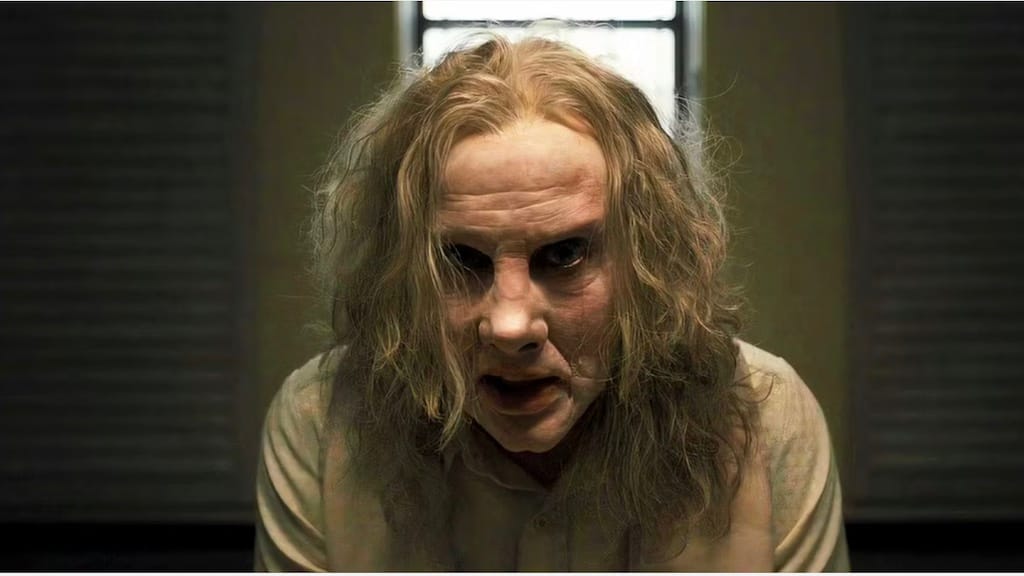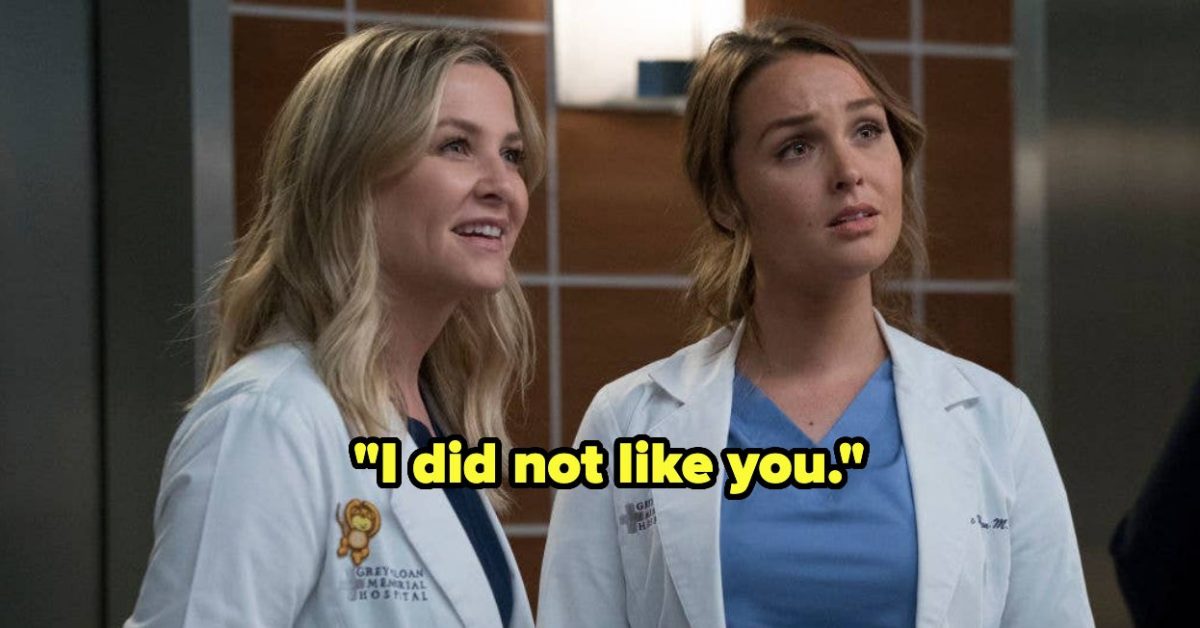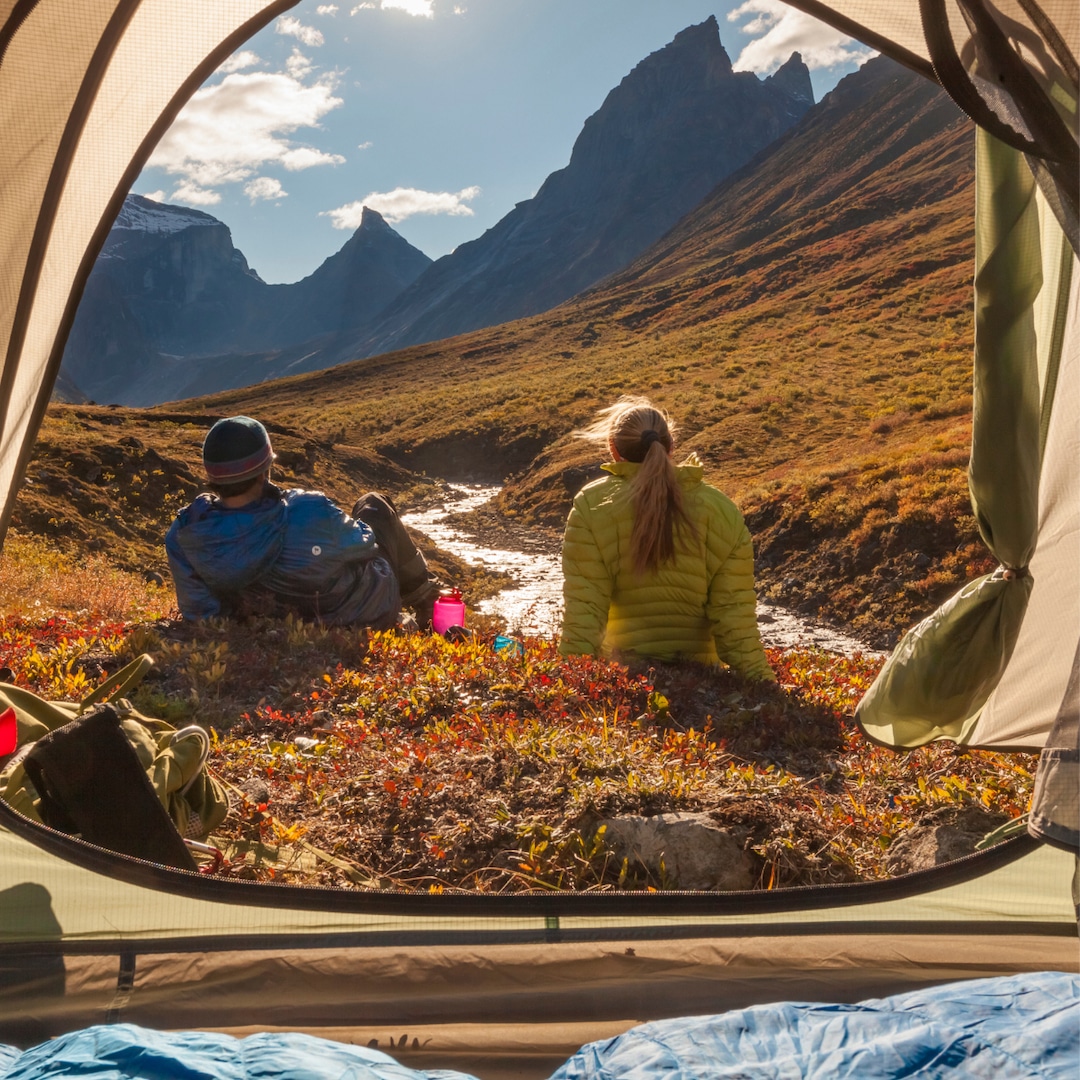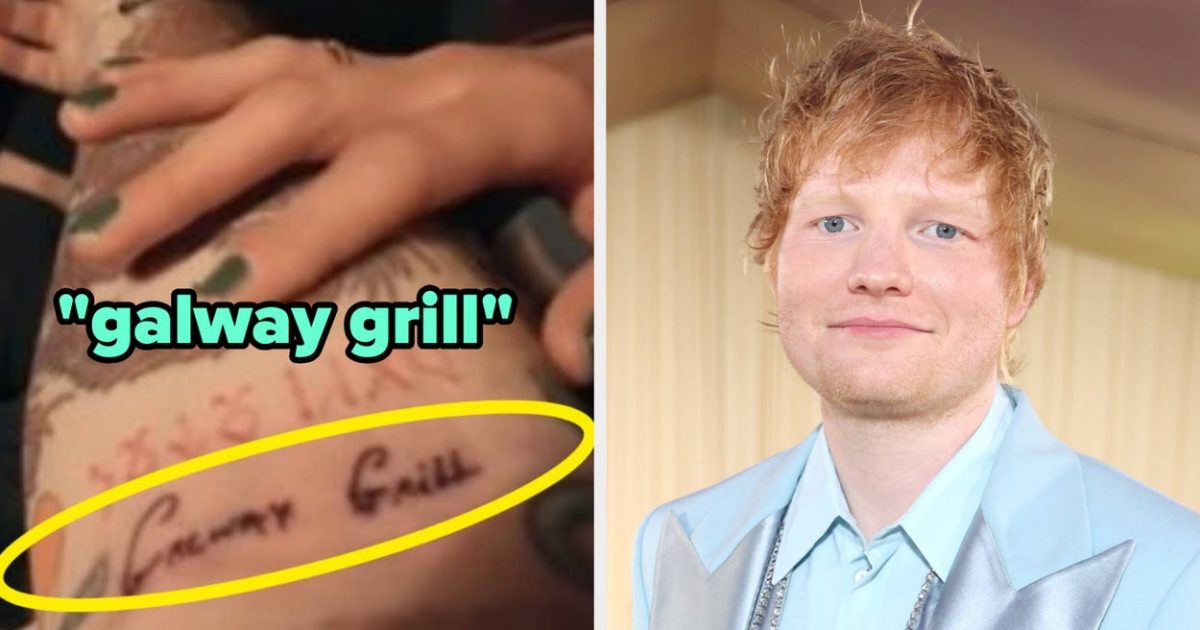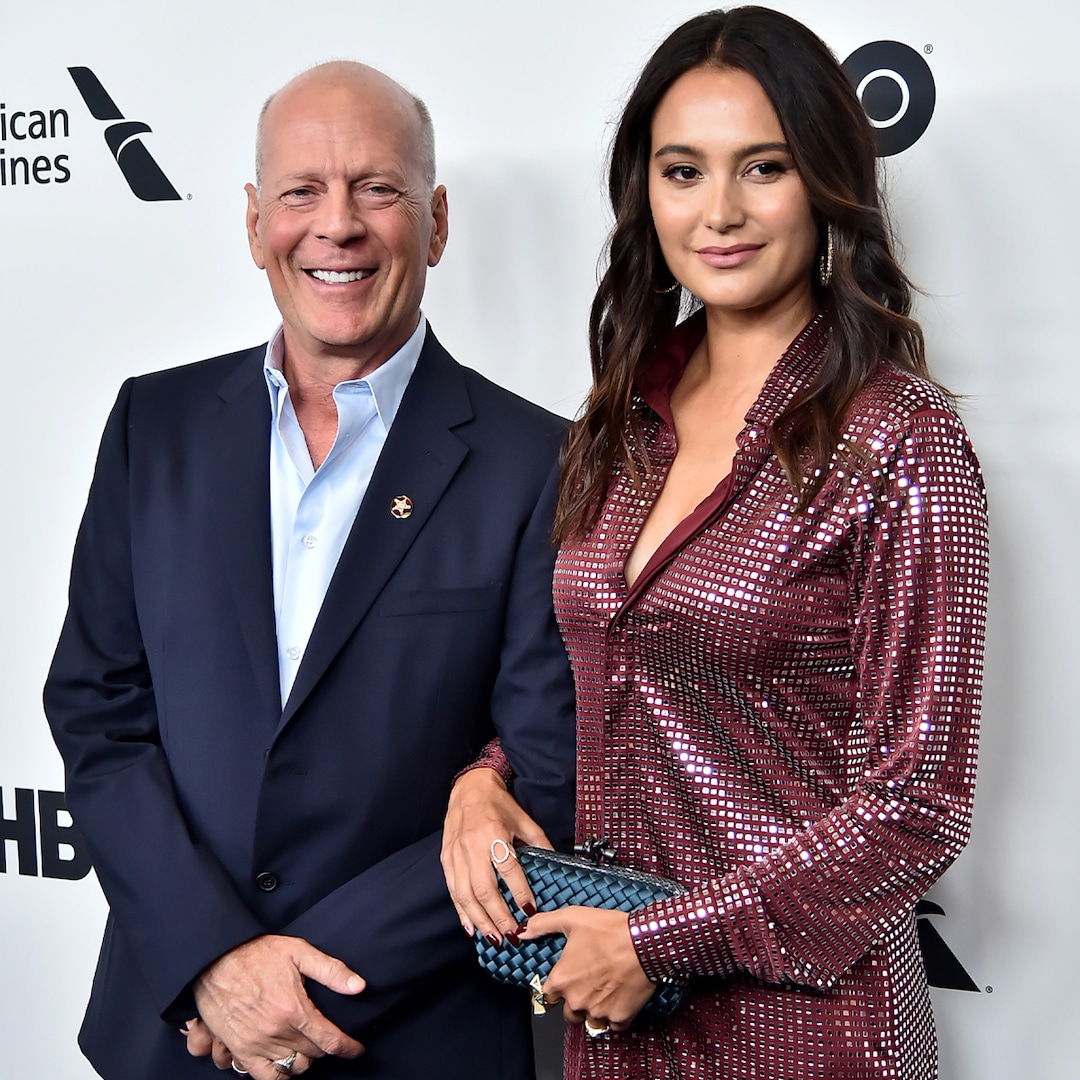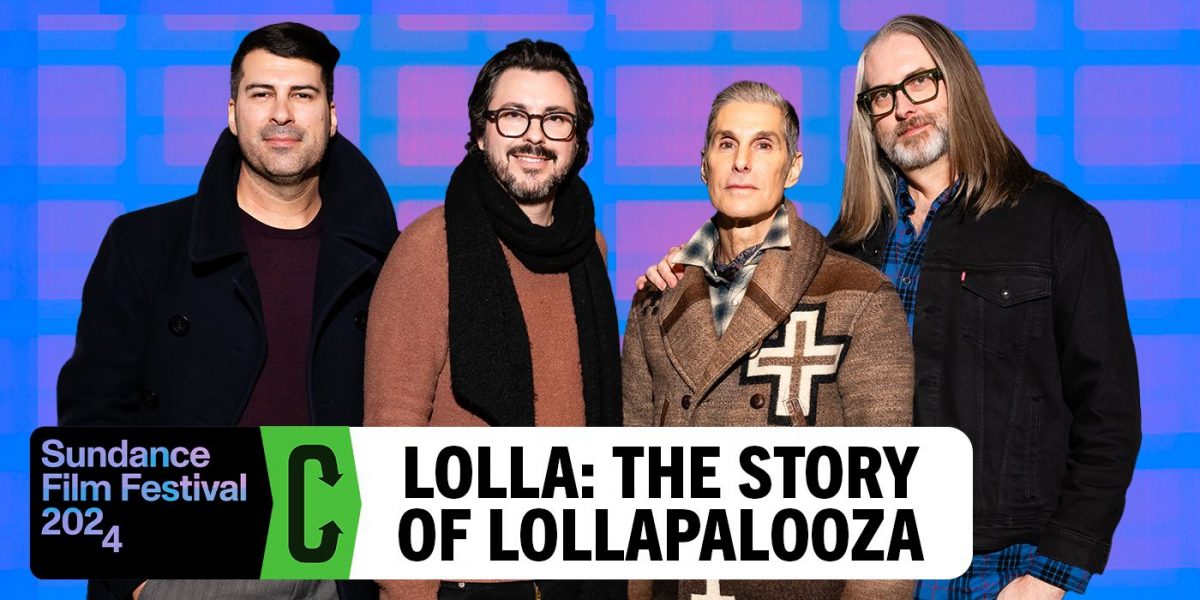
Here’s What Gen Z Should Take Away From ‘Lolla: The Story of Lollapalooza’
Jan 28, 2024
The Big Picture
Lolla: The Story of Lollapalooza is a 3-part docuseries that delves into the origins and cultural impact of the iconic music festival. The series explores how Lollapalooza shaped the music scene in the ’90s and became synonymous with the popularity of alternative rock. The docuseries uses archival footage and interviews to highlight the political and industry influence of Lollapalooza, providing an immersive experience for viewers.
Most of us know what Lollapalooza is – a four-day festival that attracts enormous numbers to celebrate music, with huge lineups ranging across different genres. Nowadays, we see artists like Billie Eilish, Kendrick Lamar, Green Day, Tove Lo. Over 30 years since the festival’s conception, however, few of us know its origins or even its cultural impact. In Michael John Warren’s Sundance Film Festival debut, the filmmaker’s three-part docuseries, Lolla: The Story of Lollapalooza provides an immersive look at the genesis of this counterculture phenomenon.
The docuseries, which will premiere on Paramount+, takes its audience back to 1991 when Lollapalooza was formed as a farewell tour for Jane’s Addiction. Co-founder and Jane’s Addiction frontman, Perry Ferrell, had a big hand in organizing the summer-long tour that focused on music from the fringes of mainstream culture. Ultimately, this event altered the trajectory of the music scene in the ‘90s. In fact, the ebb and flow of Lollapalooza is nearly synonymous with the popularity of alternative rock. Warren’s series uses actual archival footage and interviews with the bands for behind-the-scenes recounts to highlight the influence of Lollapalooza, politically and within the music industry.
Director Warren, and producers Farrell, Brian Lazarte, and James Lee Hernandez joined Collider’s Steve Weintraub in our Media Studio, sponsored by Film.io, to talk about the importance of music throughout the generations. Farrell shares his own experiences growing up with music, how meaningful Lollapalooza’s outreach still is to him to this day, and some of his favorite line-ups. They also discuss why now is the perfect time to tell this story with the world, how the turbulence of the ’90s that spurred the creation of Lollapalooza mirrors today’s world, and why it’s so important to look back at the generations that came before.
You can check it all out in the video above, or you can read the full interview in transcript form below.
Lolla: The Story of Lollapalooza In the summer of ’91, the Lollapalooza music festival was born. What started as a farewell tour for the band Jane’s Addiction, rose from the underground to launch a cultural movement and change music forever. Release Date January 25, 2024 Director Michael John Warren Cast Ice-T , Flea , Lars Ulrich , Tom Morello , steve aoki , Chance the Rapper Runtime 89 minutes Main Genre Documentary
COLLIDER: I have a bunch of questions, but I like throwing some curveballs at the beginning. You have an amazing resume of music. If someone hypothetically has never heard any songs that you have done, what is the first one you’d like them starting with and why?
PERRY FARRELL: I would probably change the answer daily, right? But last night, as an example, there was a gentleman, he told me he was 56, and he said, “Your song, “Jane Says,” meant a lot to me.” He said, “It still does mean a lot to me,” and I understood what he meant. Just to know that there is a song where a person needed a song like that when they’re at their worst or at their lowest, the only thing I could think of, other than, like, the top surgeon in the world, would be the top musician in the world to heal his broken heart.
Image via Sundance Film Festival
First of all, that song is one of my favorites that you’ve done, but second of all, I can’t imagine what it’s like for you to have created works of art — music is works of art — that has impacted people on a daily basis, and they go to it to make themselves feel good. It must be an amazing feeling.
FARRELL: It’s like being a vitamin.
That’s an interesting analogy, and very true.
FARRELL: So I like walking around town feeling like a vitamin.
I’m so happy you made this, and the first two episodes were fantastic. It’s ultimately a three-episode series, so how did you decide it was going to be a three-episode series? Did you know that going in or was it based on the footage you had and the story you wanted to tell?
MICHAEL JOHN WARREN: I’ll take a swing at this. I mean the truth of the matter is, it was a really hard decision and there’s a version that is, you know, 300 episodes of this. We had mountains and mountains and mountains of incredible footage. We wanted to make sure that the film explored all the topics that we explored, and we wanted to make sure that it did that at a brisk pace, and we didn’t want to be too luxurious in it. But honestly, it was one of the harder decisions of the whole project, for me personally, was how to let go of some of the storylines we had to let go of in order to make this film the way we knew it should be made.
What Is ‘Lolla: The Story of Lollapalooza?’
Image via Sundance Film Festival
I realize most people watching this will have not seen the docuseries yet, so who wants to bite the bullet and explain through the logline and what it’s about and what people can look forward to?
JAMES LEE HERNANDEZ: Lolla: The Story of Lollapalooza is, in a nutshell, the story of the entire history of Lollapalooza, which started in 1991, and started as Jane’s Addiction, Perry and the band. It was supposed to be their farewell tour, and they brought together acts that weren’t playing big venues. But together as a force, as the entire lineup that they had, they were able to play these larger shows and were a traveling festival, which festivals had been dead in America since Ultima in the 1960s. So they do this festival, it actually is a huge success, and what it does is exactly what you would hope something like it does – it brings the underground up from being the underground, to actually people experiencing art in a way they’d never experienced before. And Perry had the foresight to continue to break these new bands, these new acts, these new artists in ways that nobody had ever done before. And it carries through all the way to today.
Perry, one of the things I think a lot of people will not realize, or will forget, is when you put this together, this was before the internet.
FARRELL: In fact, the year Lolla broke, the internet broke. It was that year.
One of the things that I thought was so amazing that you did with the festival, and do with the festival, is highlighting groups, whether it be the right to vote or PETA or whatever the groups are, you can be specific. Having them at a festival like that, you were exposing these groups to people that might not normally get it in different parts of the country because, again, before the internet.
FARRELL: Well, it presented some challenges, obviously, but it also did some things that…I’ll give you an example. You ever show up at a party, and it wasn’t supposed to be a very big deal, but it ended up, there might have been 25 people there, not a super overcrowded party, wasn’t over-hyped? Then you were there, and you started meeting these really interesting people, and they knew the music to play, they knew the discussions to have. Then you end up thinking back on that night, and you’re going like, “God, that was one of my favorite nights. I couldn’t have, almost, afforded all the richness of that night.” So what was beautiful about what we had to do is we had to work with the fact that there was no easy sell. We couldn’t ram it down your throat. It had to be word of mouth, so it had to be the right people. I always say the best parties, they’re always generated by people that know great music. Draw those people that love great music. They become your friends, and then that becomes the culture. So, that handicap actually did great things for us because it wasn’t easy to find. It was out of the way. So when you found it, that was the great feeling.
Image via Photagonist at the Collider Media Studio
One of the things I think people don’t realize when you’re making a series like this is you need to clear all the footage.
WARREN: [Laughs] Next question.
And the clearing of the footage is sometimes very challenging, or you can lose things because you can’t clear it. Talk a little bit about the challenges of clearing, and was there stuff that you are so disappointed you couldn’t do because you ultimately couldn’t clear it?
WARREN: We were incredibly lucky with what we were able to clear. First of all, we were incredibly lucky in what we found. We had remarkable footage. It’s sort of like an onslaught. It just keeps coming at you. I can’t even believe we have this on camera and that it’s in this movie now. So we were enormously successful in finding stuff and enormously successful in being able to clear it. But yes, of course, there are challenges with all that. The shot I couldn’t clear that I really missed was that Trent Reznor, Nine Inch Nails performance where he’s crawling like an inchworm across the stage covered in dust when he has that big show after. No spoilers, but he’s having a great performance.
BRIAN LAZARTE: There was another camera that we couldn’t clear.
WARREN: Yeah, and so it was just so beautiful, but we had all this other incredible stuff. So, no one’s ever going to miss that thing that we couldn’t clear. Because that scene last night, I was like, “This scene’s almost better without it,” because it was so well edited. And so, it was definitely a challenge. A lot of people did us a lot of favors. Perry’s got a lot of good will out in the world, and I think a lot of the people who were holding on to that footage understood, like, “This is the moment to let us use this footage.” So people did us a lot of favors. We had an incredibly talented group of people working on it.
One of the things I was thinking about as I was watching Lollapalooza is I was comparing it to Sundance a little bit. Sundance does an amazing job championing independent cinema, but they surround it with big stars in smaller movies. With Lollapalooza, there’s a lot of smaller bands, but ultimately you have to have, I think, someone at the top. There has to be a band that for some people they know they’re going to get that, but they’re also going to get all these other cool acts. In the beginning stages, in the first few years, can you sort of talk about that and as the festival has grown? It’s the mixture of indie and a little bit of popularity in that melting pot that allows you to do these things.
FARRELL: Yeah, there’s a balancing act, for sure. In the end, I think we make a pretty good team. There are people working at analytics, I’m not one of them. The nice thing is I still go by my heart and by my ears. If I can hear something that turns me on, then I’m certain it’s gonna turn other people on. It doesn’t matter if 10 people know about them yet, but I know I can hear they should know about them. When they know about them, when they hear them, when they see them, again, they’ll never forget it.
Why It’s Important to Tell Lollapalooza’s Story Today
Image via Photagonist at the Collider Media Studio
Why is now the right time to tell the story, and not, say, ten years ago. What is it about this moment?
WARREN: So I was 17-years-old in 1991 when I saw the first Lollapalooza, but prior to seeing that, I was sort of stuck in the doldrums of suburban America. We were seeing a lot of turbulent times at that moment. There was this ultra conservative movement going on in America. We were watching the environment start to really catch fire. The realities of police brutality had come into headlines with the Rodney King video, which was eye-opening for those of us who didn’t live in a city. Me and my weird little artist friends were pissed as hell about what was going on, but we thought we were alone on that. And so, I went to Lollapalooza to see one of my heroes, Perry, and all the other incredible bands that were on that bill, and suddenly I see these activist booths and I see these kids moshing and stage-diving. Like I had seen that, but I sat at the VFW hall in my hometown with, like, 30 people in the audience. Suddenly it’s thousands of kids doing it, and I knew if there’s thousands of kids in Mansfield, Massachusetts…
You went to Great Woods?
WARREN: Yeah, I’m from Mansfield, Massachusetts, believe it or not. But I knew if there were thousands of kids in my hometown who felt like I did, and were that pissed off, then that meant there were millions of us across America. I think that Lollapalooza sort of pulled us all into one room, and we all were like, “Holy shit, we are all feeling this way.” I really feel like Gen X was identified that day. So, it was just this moment. Then I also feel like one of the reasons why this film is so important right now is I feel like Gen Z is going through a lot of the same things we were going through back then with the Supreme Court and Clarence Thomas — it’s insane — the environment, police brutality. It’s all these same things that are hitting right now.
So last night at our screening, a bunch of Gen Z kids came up to me, and they’re like, “Thank you for making this movie. It really struck a chord with me.” And I said to them, I was like, “Good, I’m glad it did, because I feel like you guys are up against a lot of what we were up against. And maybe you can learn from what we did right and what we did wrong.” So, that’s my hope for this series.
Does anyone else want to add?
LAZARTE: Well, I think that the illustration of youth culture, I can’t think of another documentary that highlights the youth culture over the course of 30 years to be able to see the passion that all of these kids had. When I was a teenager in the ‘90s wanting to see my favorite band and discovering new bands, which is like coming to Sundance and discovering new filmmakers, I never thought about looking back and seeing, “Oh, there’s all these similarities.” You see this growth over the course of 30 years, and that’s one of the things that became a discovery in making this series. I don’t think we realized just how impactful it was to be able to see kids, year after year after year, come and celebrate and look for and discover their favorite bands.
Image via Photagonist at the Collider Media Studio
FARRELL: Can I add something to this discussion? When we’re growing up, us boys, we like to think about, “Oh, maybe I’ll be a baseball player,” or, “Maybe I’ll be a football player.” “You’re not big enough to be a football player or a basketball player.” “What do I do now?” The world of sports is there from the earliest age. If you want to be an athlete, the colleges have you covered, the high schools have you covered. But if you want to be an artist, if you want to be a musician, man, you’re going to have a rough life. You’re on your own. And so I noticed early on, I mean, I had the chance to see this firsthand because the generation before me were driving around in their own planes, and it said “Zeppelin” on it. And I’m like, “Fuck man, that sounds like fun, right?” No, by the time Jane’s came around, we were in a Winnebago, like, drawing dicks on each other’s heads. It was a different world. You had to do it because you loved it.
But the point I’m trying to make is, there is no system for an artist. There’s a system for an athlete. There’s not a system for a musician or an artist, so I wanted to create a system where you can be 15-years-old, and, “We’ll get you in a club, we’ll get you recording. You’re talented. Your artwork is incredible. In fact, it’s raw and it’s truthful because you got nothing to lose because you got nothing. So, tell me the truth.” And I’ve always maintained since ‘91 that we were that kind of that farm league bringing up the musicians and the artists. They’re so important because without them, the truth just gets covered up right away. And again, ‘91, the worldwide web hit, and it’s just so easy to fool the public. And that tool, I think we’re going to get the tool right. There’s a reason why our generation got this tool. We’re the right people to deal with it, but we’re taking on monsters. We’re taking on people that have no regard for the environment. They just want power. And how do they get their power? I mean, “I don’t give a shit. Let’s chop down the rainforest.” So, that’s who we’re up against. And the people that can stop them, it sounds funny, like, musicians should be wearing superhero costumes. But we take it on. We take on the problems of society. We’ll party you out, too. We’re invaluable in that way. In the future, we will find better and better systems.
I have another project coming up, Heaven After Dark, and it’s all about dance music. Collaborating with young dance musicians and putting on parties there, we need that Petri dish. The artist needs that place to grow. It ought to be in schools. When I was a little kid, I know they allowed me to pick up a trumpet, then they made me give it back. But at least there were music programs.
Yeah, there were music programs when I was growing up.
FARRELL: Yeah, but there’s no music programs. They’re all gone now. And so it’s even more difficult to find those gems. You need people like Lollapalooza, our team, that care and love and understand the importance, the value. It is so valuable to have a perspective of an artist and a musician. Without it — I mean, I was about to just make a joke that would be just too easy to make you all laugh — but without it, the world would just be ugly sound.
WARREN: That’s why I love this series, because I feel like what he just said is articulated so well in it, and it’s documented. Now, everyone can go find that and see that struggle.
Yeah, I didn’t think I was going to bring up Taylor Swift in this, but I thank Taylor Swift for how many people she has registered to vote on her tour. I think she’s registered like a million people.
FARRELL: That’s awesome.
Yeah, exactly. And by the way, I really appreciate it, because musicians really can influence especially a lot of younger people. And I think about everything you’ve done for generations with Lollapalooza and how many people you’ve influenced and impacted, and I say thank you.
FARRELL: Thank you. I love all that, but I love just as much the idea that, yeah, we gave them sun, we gave them light. Now the world knows who they are. They party to them. They know what they’re about. And there’s your culture. It’s in the art, it’s in the music. That’s where culture is. It literally is like the Petri dish. There’s culture there. There’s culture.
WARREN: Love it. Great answer, as usual.
Music and Art Are “the Only Way To Beat Money”
Image via Photagonist at the Collider Media Studio
Lollapalooza has put on such amazing artists through the years, and I’m curious, do all of you have a favorite year of the festival and the lineup? Was there one year you’re like, “I can’t fucking believe this was our lineup?”
FARRELL: You know, if you showed me a page… [To someone off-camera] Like the other day, Darlene, when we were talking about, “All those people were on that same year?” It wasn’t even a year that anybody really talks a lot about. Do you remember what year it was?
DARLENE: We had Muse, we had Eminem…
FARRELL: Okay Muse, Eminem, The Arctic Monkeys… and Deadmau5.
Already that’s a crazy line-up.
FARRELL: I mean, can you believe there they all are? They’re all there, man, out in the field. All we got to do is kick back and listen. Can you believe all that talent was there? But it becomes harder and harder every year, because what we fight is we fight that internet. That internet threatens to drown us out. So we need to be always, I always say this, a team. We need to be unified. We need to be really strong, because the only way to beat money is music and art. That’s it.
On that note, I need to wrap with you guys. I’m just going to say, and I really mean this, this is really, really fantastic. I’ve seen two of the episodes, and obviously as soon as you want to send me the third, I’ll watch. But the first two episodes are fantastic. And you guys did a great job, and I really hope it’s a huge hit for you guys.
WARREN: Thank you.
LAZARTE: It’ll be on Paramount+ soon. Very soon. All three episodes.
WARREN: Across the globe.
Special thanks to our 2024 partners at Sundance including presenting partner Film.io and supporting partners Pressed Juicery and DragonFly Coffee Roasters.
Publisher: Source link
"We Despised Each Other So Much That It Read As Love": 13 Costar Duos Who Did NOT Get Along
Diane Kruger said, "It kind of sucked. He's dead, so I can say that. But he wasn't the most pleasant person."View Entire Post › Disclaimer: This story is auto-aggregated by a computer program and has not been created or edited…
Dec 25, 2024
19 Best Experience Gifts for Everyone on Your List
Our writers and editors independently determine what we cover and recommend. When you buy through our links, E! may earn a commission. Learn more. As the holidays approach, the last loved one on your list is usually the hardest person to…
Dec 25, 2024
Celebs With Embarrassing Tattoo Mistakes Revealed
If read vertically from top to bottom and horizontally from right to left, which is how Japanese is read, the tattoo translates roughly to say "ring seven fingers." However, if the tattoo is read horizontally from left to right and then…
Dec 24, 2024
Bruce Willis’ Wife Emma Shares Family Photos Amid His Health Battle
Bruce Willis’ wife Emma Heming Willis is cherishing the good times. Almost two years after the Die Hard actor’s wife, his ex-wife Demi Moore, and his kids Rumer Willis, 36, Scout Willis, 33, Tallulah Willis, 30, Mabel Willis, 12, and Evelyn Willis, 10, announced that…
Dec 24, 2024


